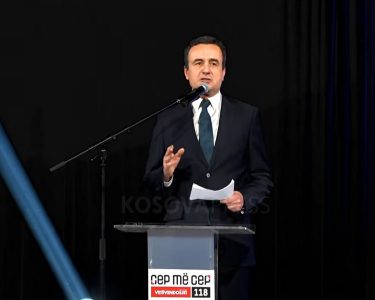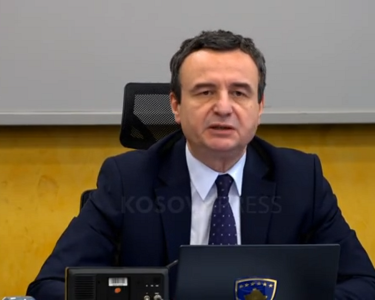The number of population in Kosovo is over 1.5 million, according to preliminary data from the Kosovo Agency of Statistics (KAS). Of them, nearly 800,000 men and over 790,000 women.
Meanwhile, out of 38 municipalities of Kosovo, 29 of them have a decrease in the number of the population, while in the other 9 there has been an increase.
The Prime Minister of Kosovo, Albin Kurti, said that the population census is not only statistical, but a reflection of the commitment to address the needs of the population.
He said that with accurate data we are sure that we will not lose our way.
Kurti emphasized that the publication of complete and accurate data will enable users and decision-makers to guide the best policies and services for citizens.
He added that without quality statistics, even decisions can be inaccurate and of poor quality.
The director of the Kosovo Agency of Statistics, Avni Kastrati, said that the number of citizens in Kosovo is 1 million 586 thousand 659.
Meanwhile, according to preliminary data, 600 thousand citizens have been registered from the diaspora.
He said that 795 thousand 46 are men, while 791 thousand 614 are women.
Kastrati indicated that there are 560,000 habitable apartments and that family households are growing by 353,000.
Kastrati indicated that in 2011 the average age was 29 years whereas in 2024 it is around 34 years.
He emphasized that in the four northern municipalities, Leposaviq, Zubin Potok, Zveçan and Mitrovica, there was a large boycott during the population census process.
The coordinator at the United Nations Kosovo team (UNKT), Arnhild Spence, said that the population census is an achievement in the Kosovo path towards development. She said that sustainable development is based on data and that we have many of them in Kosovo.
Spence stressed that attention should be paid to reducing poverty, for which she emphasized that the development of the economy is not equal and that work should be done to benefit those who are most vulnerable.
Meanwhile, Eduard Jongstra spoke about the international aspect of the Population Census, for which he said that they have closely observed the interviews and it has been proven that the questionnaire fulfills all the recommendations that exist in the international arena.
According to him, the use of modern technology has been impressive, while he also mentioned the use of GPS data.
The population census started on April 5 and ended on May 24. /Z. Zeneli/








